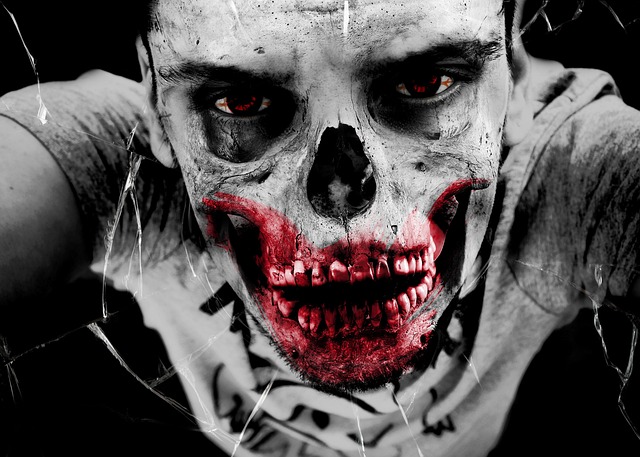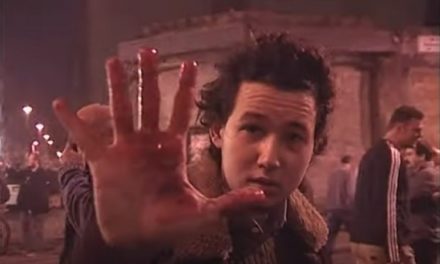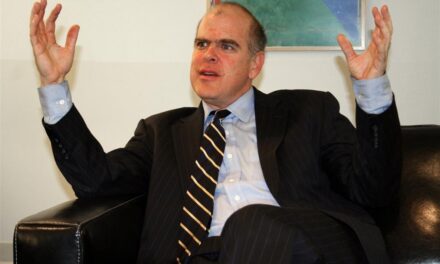I honestly don't understand why progressives are so vehemently opposed to the death penalty while fighting for the right to abortion and euthanasia.
I first encountered the theoretical issue of the death penalty at university, when we were given the task of arguing in writing in favor of the death penalty in a seminar called "Communication in Word and Writing". Or against. You were free to choose. I usually take the tasks entrusted to me seriously, it was no different when I was a university student, and impartially, philosophical, legal, moral, ethical, economic, etc. I started listing the pro and con arguments according to aspects. By the time I got to the end, the tip of the scales clearly tipped in favor of the death penalty. Needless to say, out of the 15 students in the seminar, everyone except me argued against it. In the end, I realized that it could have happened because - although self-praise stinks, I still believe - I was the only one who understood the task and decided based on real arguments instead of the fashion of the zeitgeist.
I wrote this in the introduction:
"Until the 20th century, there was no one who rejected this form of punishment under all circumstances, that is, even in extraordinary situations; for this the II. World War II and the Nazi and Stalinist genocides were necessary, as a counter-effect of which the respect for human rights became an absolutely inviolable principle... Hungary's membership in the European Union excludes the possibility of discourses on the reintroduction of the death penalty on a more than theoretical level, despite this, the vast majority of society still supports it today. admits that there are indeed special cases where it would be necessary to apply the death penalty. The aspects listed below will prove the legitimacy of this social demand, and at the same time refute the arguments of the abolitionists, the main pillar of which is the thesis that the right to life and human dignity ... is an innate, inviolable and inalienable fundamental right of every human being.”
And I ended like this:
"Finally, let's not forget perhaps one of the most important arguments: the decision is always in the hands of the killer. If there were again a law in Hungary according to which the death penalty could even be imposed on the perpetrators of certain acts, then the person who commits such an act would actually agree to be sentenced to death, since he decided of his own free will whether to commit the murder and thereby undertakes the death penalty or does not commit it. No one forces a criminal to commit a crime that carries the death penalty, so he voluntarily accepts his own death sentence, or at least the possibility of it, compared to victims who had no choice."
Therefore, if we approach the question purely based on arguments, we cannot come to any other decision than that the application of the death penalty is justified in exceptional cases - and not in the profession.
Why do modern societies have to support for the rest of their lives criminals who have committed murder or mass murder with premeditated intent, nefarious motives, and extraordinary cruelty?
But nowadays everything is reversed.
" Amnesty International opposes the death penalty in all cases , regardless of the nature or circumstances of the crime, guilt or innocence, or the method used by the state to carry out the execution. The organization is campaigning for this cruel punishment to be completely and permanently abolished by the states," we can read on the organization's website.
But that's not quite true.
Legal defenders are not against the death penalty in all cases, for example they specifically support it against the most defenseless, innocent and vulnerable people. I guess that's not cruel.
"Delegates adopted a new version of Amnesty's previous abortion policy , which not only calls on countries not to punish abortion providers, but broadly guarantees legal and safe access for women, girls and all people who can become pregnant .”
I wouldn't bother with the wording - I wonder what the poet could have meant when he wrote that "women, girls and all people who can conceive"? – because the topic is much more serious than that.
Abortion has been legal in Hungary since June 4, 1956 , and by 2022, more than six million abortions have taken place.
In the forefront of the debates on the topic, the proponents place extreme emphasis on extremism, in other words, shameless demagoguery. The question arises as to what happens if the pregnancy is the result of a crime or endangers the life of the mother? But the reasoning error appears when we are faced with how the rates of abortions are distributed. Examining the KSH statistics of the past decades, we see that on average
only 0.3 percent of abortions occurred because the mother was a victim of violence, 1.5 percent because of a threat to the mother's life, and 1 percent because of an abnormality of the child.
And the numbers don't lie; 97.2 percent of pregnancy terminations are done in reference to a crisis situation, not because "uncle raped his 15-year-old niece". A crisis situation, on the other hand, can be practically anything, so there is no real obstacle in the way of aborting the child - before the first trimester.
So whether you like it or not, we have to say that the vast majority of women who decide in favor of abortion in Hungary today (also) see taking the life of their fetus as the last means of contraception. Chimney? It is. Especially if we add that the supporters are fighting so that not even their conscience is at play - that's what the hysteria about the heart rate decree was all about.
Euthanasia, which is becoming more and more fashionable in the West - as a wonderful achievement of modern times - is similarly a quagmire. Although the European Court of Human Rights recently made a pro-life decision in the case of Tom Mortier , the trend is more than worrying.
Mortier filed and won a lawsuit against the Belgian state, because his 64-year-old mother, who was suffering from depression but was physically perfectly healthy, was given a lethal injection in 2012, despite the precautions contained in the euthanasia law, without asking for an independent second opinion, without notifying her family, neither did his psychiatrist, who had been treating him for years, and the review committee also left the irregularities at that. Mortier himself only learned of the euthanasia the day after his mother's death, when the hospital called him to dispose of the body. Charming, isn't it?
In Belgium, an average of seven people are put to sleep every day, but the committee responsible for reviewing cases related to euthanasia rarely orders further investigations. we have already written about the case of Canada , which embraces the LGBT lobby most spectacularly , where lethal injection is really used professionally.
We therefore believe that in the modern world - with the exception of a few states in the USA - the death penalty is strictly prohibited, condemnable as it is inhumane - but only against murderers. The innocent and the fallen can be executed legally with a calm heart and a clear conscience.
I say: everything is the other way around.
Featured Image: Pixabay












